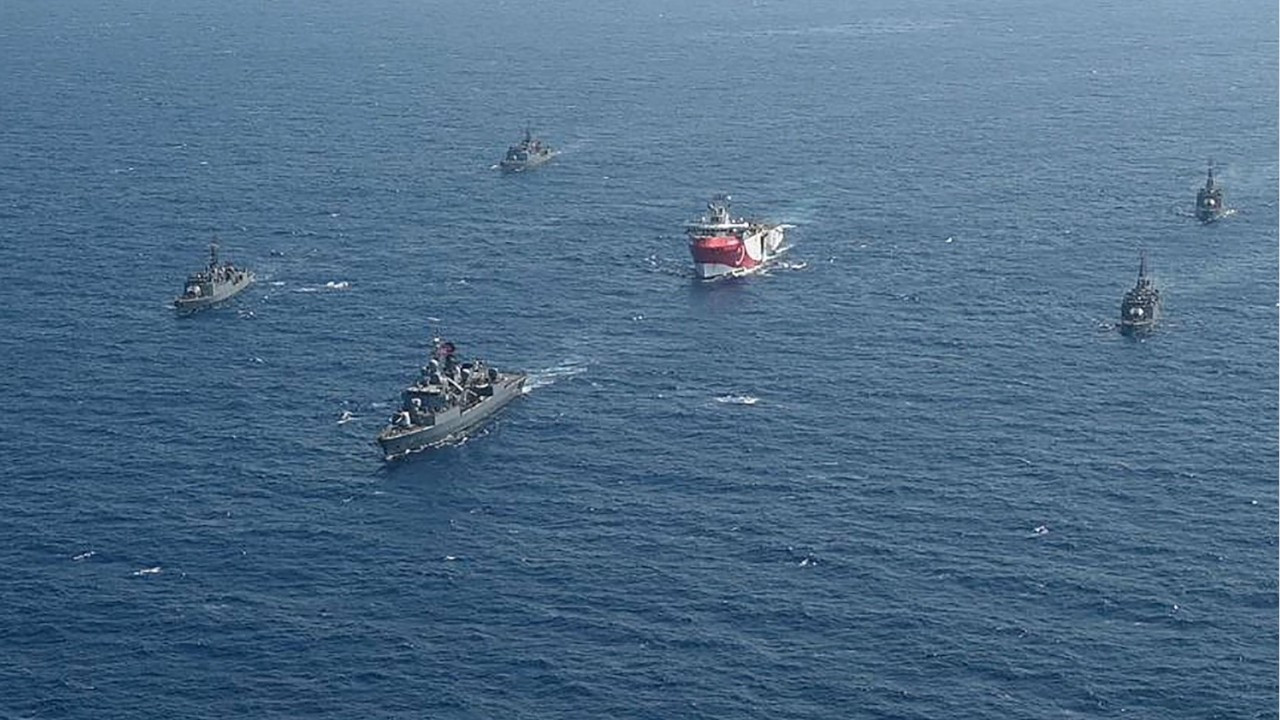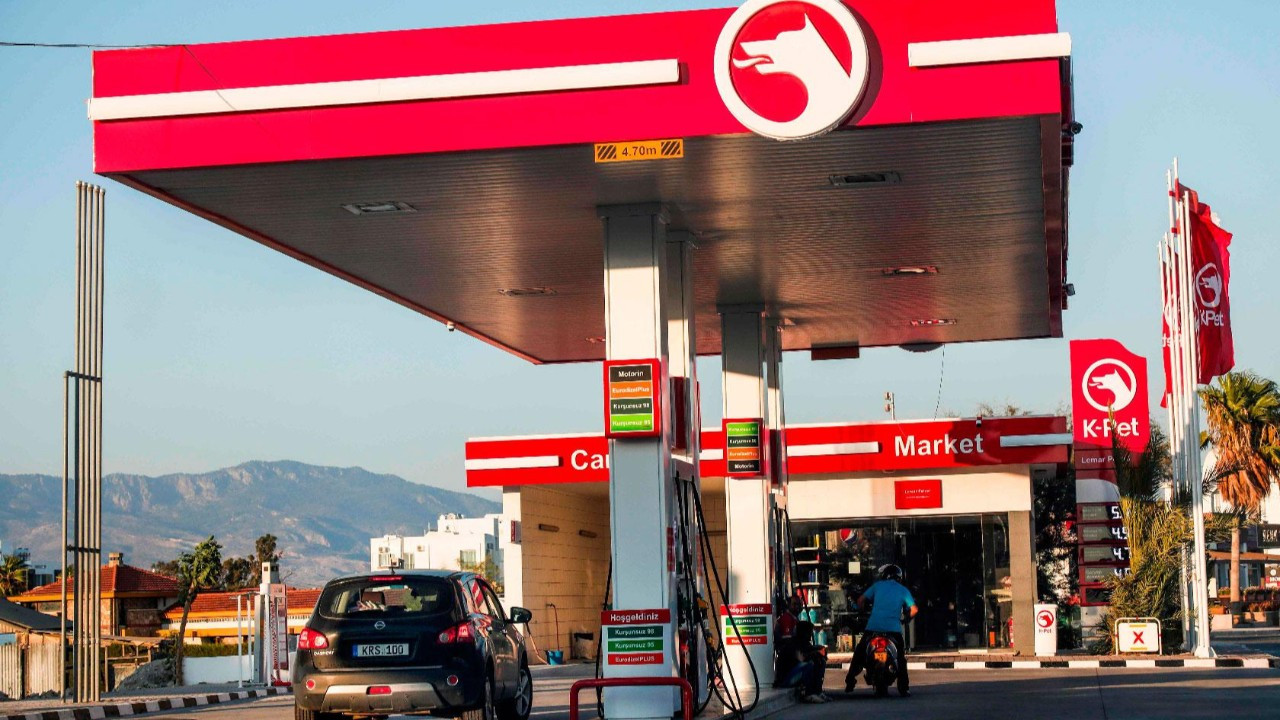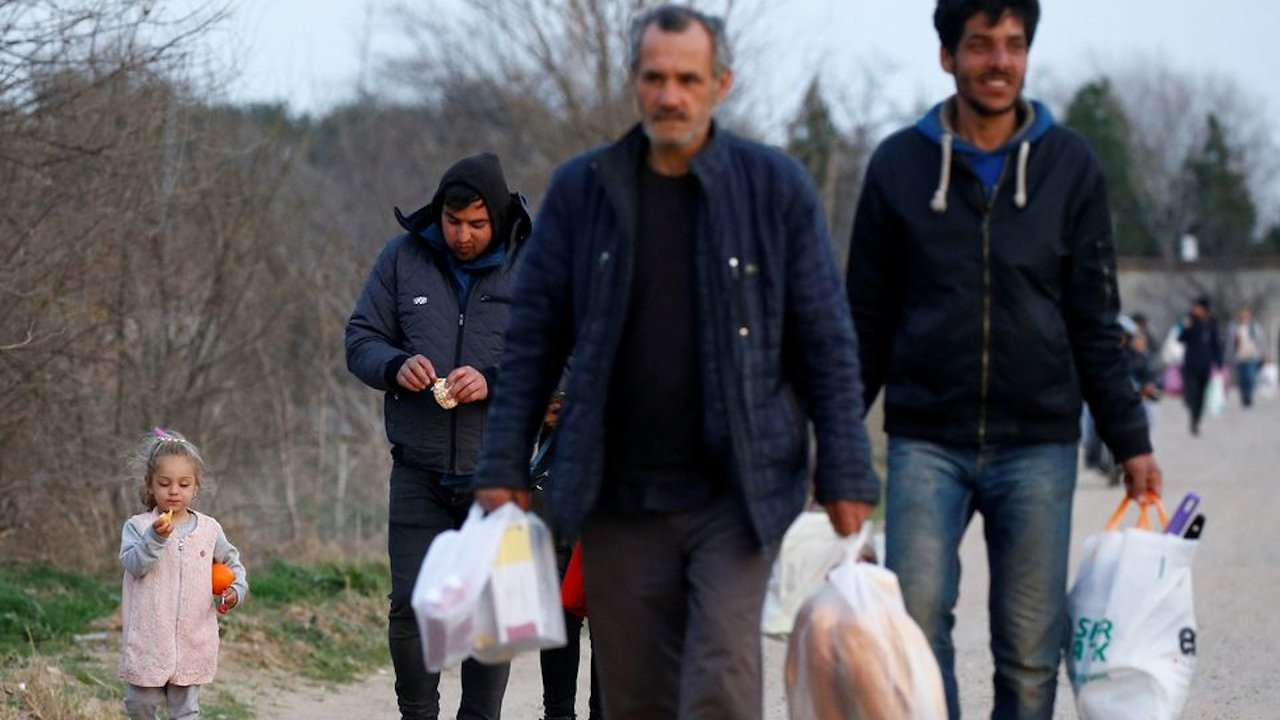ExxonMobil, Qatar sign Cyprus gas deal despite Turkey's opposition
ExxonMobil and Qatar Energy signed a contract on Dec. 10 for oil and gas exploration and production-sharing off the divided island of Cyprus despite Turkey’s opposition to the deal, Agence France-Presse reported.
Duvar English
U.S. giant ExxonMobil and Qatar Energy signed a contract on Dec. 10 for oil and gas exploration and production-sharing off the divided island of Cyprus despite Turkey’s opposition to the deal, Agence France-Presse reported.
Greek Cypriot Energy Minister Natasa Pilides, Varnavas Theodosiou, CEO of ExxonMobil Cyprus, and Ali al-Mana, director of Qatar Energy’s International Upstream and Exploration, signed the contract in Nicosia.
It is the second gas exploration contract that the consortium has signed for Block 5 in the island's Exclusive Economic Zone (EEZ).
In February 2019, the consortium discovered a huge natural gas reserve off Cyprus in Block 10, the island’s largest find to date, holding an estimated five to eight trillion cubic feet.
The consortium plans to drill an appraisal well on Block 10 in late December, with results expected by the end of February.
Oil and gas drilling off Cyprus has been interrupted by the COVID-19 pandemic.
"Despite the increasingly difficult working environment for the global oil and gas industry, today we are taking a decisive step towards enhancing our mutually beneficial partnership," Pilides said at the signing ceremony.
Asked about Turkey’s negative reaction to the licensing of Block 5, Pilides said: "We proceed based on international law and the Law of the Sea; this has always been our principle."
Fieldwork on Block 5 will begin in the second half of 2022, she said.
Turkey has threatened to prevent ExxonMobil’s search for oil and gas off Cyprus after Nicosia awarded it the rights to Block 5.
Last week, the Turkish Foreign Ministry said a sector of the licensed area violates Turkey’s continental shelf in the eastern Mediterranean.
"Turkey will never allow any foreign country, company or ship to engage in hydrocarbon exploration activities in its maritime jurisdictions," the ministry said.
Ankara would "defend" its rights and those of the Turkish Cyprus, it said.
Turkish Cyprus, recognized only by Ankara, lays claim to energy resources discovered off its coast, insisting the island’s natural resources belong to both communities.
The eastern Mediterranean has become an energy hot spot, with significant natural gas finds for Cyprus, Israel and Egypt.
Ankara was accused of "gunboat diplomacy" in February 2018 when the Turkish navy prevented a ship leased by Italy's ENI from reaching its drilling target in Cyprus’s Block 3.
The European Commission has urged Turkey to de-escalate and vowed to defend the interests of member states Greece and Greek Cyprus.
Turkey was widely condemned for sending its own drillships into Cypriot waters for energy exploration, with the EU slapping sanctions on Ankara.
In the first half of 2022, ENI and France’s Total are expected to drill in their licensed blocks.

 Turkey slams Greek Cyprus over exploration license for Exxon, Qatar Petroleum in MediterraneanDiplomacy
Turkey slams Greek Cyprus over exploration license for Exxon, Qatar Petroleum in MediterraneanDiplomacy Turkish lira's steep depreciation triggers fuel crisis in Northern CyprusDiplomacy
Turkish lira's steep depreciation triggers fuel crisis in Northern CyprusDiplomacy Turkish Cypriot opposition slams gov't complex project as waste of resourcesDiplomacy
Turkish Cypriot opposition slams gov't complex project as waste of resourcesDiplomacy Greek Cyprus accuses Turkey of 'instrumentalizing human pain' using migrantsDiplomacy
Greek Cyprus accuses Turkey of 'instrumentalizing human pain' using migrantsDiplomacy